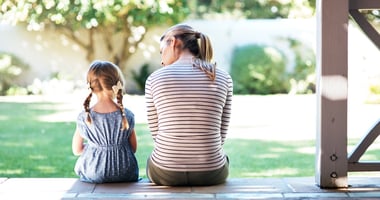A study published in the December issue of the Journal of the American Academy of Child &...
Shortened CBT Program May Help Youth With Anxiety Problems
 |
Studies in multiple countries including the United States have shown that school-based CBT programs that identify and treat youth considered at risk of disorders like depression or anxiety can be effective. A typical course of CBT involves eight to 12 sessions, which can be difficult to implement in a school setting, wrote Bente Storm Mowatt Haugland, Ph.D., of the University of Bergen in Norway and colleagues.
Haugland and colleagues tested whether a condensed CBT program called Vaag could be as effective as standard CBT. Vaag involves five CBT sessions that total 5.5 hours; the first four sessions (which includes one joint youth-parent session) are given over four weeks, and the final session is given five weeks later.
A total of 313 adolescents aged 12 to 16 in junior high schools throughout Norway reporting anxiety symptoms were invited to participate in the study. Ninety-one of the students received the brief CBT therapy, 118 students received standard CBT (10 sessions that totaled 15 hours), and 104 were placed on a waitlist for 10 weeks.
After 10 weeks, the youth who received CBT (whether brief or standard) had significantly greater reductions in their anxiety symptoms (measured with the Spence Children’s Anxiety Scale or SCAS) compared with those on the waitlist. When compared head to head, brief CBT was determined to be slightly less effective than standard CBT (7.1-point reduction in SCAS scores compared with a 10.5-point reduction, respectively).
“Even though key CBT principles and skills were the same in both programs, we compared two programs differing not only in length, but to some degree also in content,” wrote Haugland and colleagues. “This may make it difficult to determine whether the slightly different efficacy is due to the content or to the duration of the interventions.”
They added, “We need to reach adolescents who struggle with anxiety at an earlier time in their lives. The present study indicates that this may be achieved through school-based targeted CBT interventions.”
To read more about this topic, see the Psychiatric News article “Childhood Anxiety Can Be Treated—The Challenge Is to Recognize It.”
(Image: iStock/izusek)
Follow Psychiatric News on Twitter!
And check out the new Psychiatric News Brief on Alexa-enabled devices.
And check out the new Psychiatric News Brief on Alexa-enabled devices.





